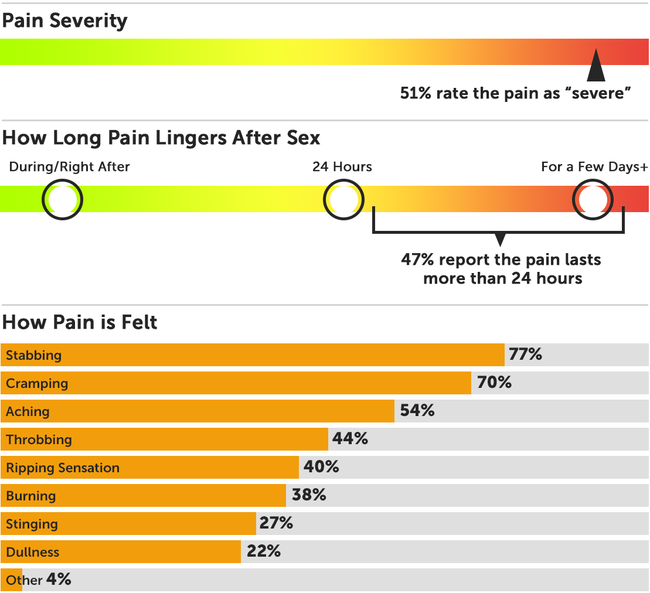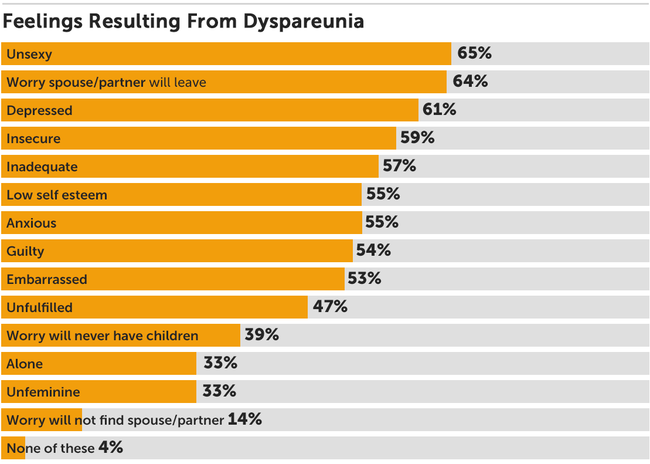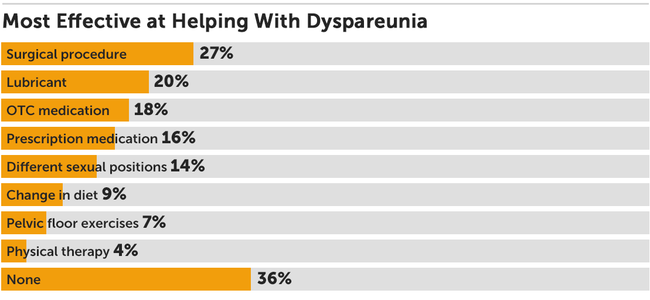
We surveyed 638 members of MyEndometriosisTeam about their experiences with painful intercourse (clinically referred to as dyspareunia) and its impact on day-to-day living. Here are a few key takeaways from the survey:
- The majority of participants who said they experience dyspareunia always or usually feel some pain during sex.
- Half of the participants rated their pain as severe, and the same number experience pain for at least a day after having intercourse.
- The pain is described as a “stabbing” or “cramping” feeling.
- Dyspareunia can result in depression or fear of losing one’s significant other.

The majority of MyEndometriosisTeam members who took the survey indicated that dyspareunia can be intense and constant, and that it lingers well after intercourse. Participants reported:
- 79 percent always or usually experience painful intercourse.
- 51 percent describe dyspareunia as “very painful.”
- 47 percent experience pain for a day or more after having sexual intercourse.
- Pain is described as “stabbing” (77 percent), “cramping” (70 percent), or “aching” (54 percent).



The majority of survey participants indicated dyspareunia can interfere with intimate relationships and cause emotional distress. Participants reported:
- 91 percent have had to stop sexual intercourse due to pain at least occasionally, with 54 percent frequently having to do so.
- 91 percent avoid sexual intercourse at least occasionally due to pain.
- 79 percent indicated that dyspareunia has impacted their relationship with their significant other, while 57 percent said they have avoided intimate relationships, and 39 percent have had challenges starting a family.
- Dyspareunia has taken its toll emotionally, with 65 percent feeling unsexy, 64 percent worrying their spouse will leave them, and 61 percent feeling depressed.



While there is no single silver bullet to lessen the pain of endometriosis, survey participants shared tips for better managing it. Some of the techniques they’ve used include:
- 27 percent have undergone a surgical procedure.
- 20 percent use lubricants.
- 18 percent use over-the-counter (OTC) pain medications, and 16 percent use prescription pain medications.
- 14 percent have experimented with different sexual positions that cause less pain.

Learn more about the symptoms of endometriosis and how to resolve painful sex and improve intimacy.
Have you experienced dyspareunia? What tips or advice do you have for helping to ease the pain felt during sexual intercourse? Share your feedback in the comments below, or start a post on MyEndometriosisTeam.


















A MyEndometriosisTeam Member
I recommend looking into pelvic floor physical therapy. Game changer for me
I had some relief after surgery but intercourse was still painful. Found out a lot of it was due to very tight pelvic… read more